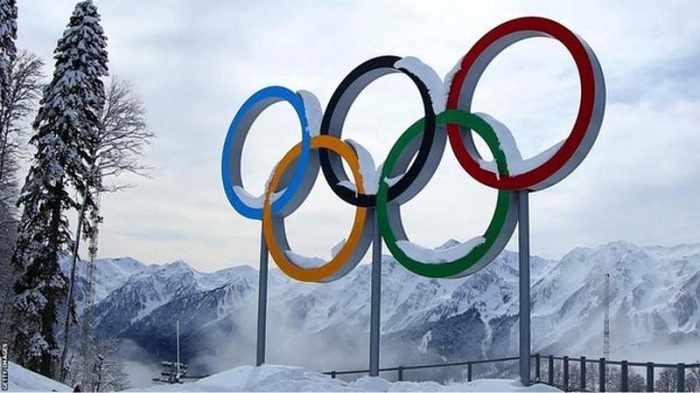But the email from Lord Coe to the IAAF`s ethics commission in August 2014 states: "I have now been made aware of the allegations."
In 2015, Lord Coe told Parliament: "I was certainly not aware of the specific allegations that had been made around the corruption of anti-doping processes in Russia."
Lord Coe denies there is any discrepancy between his evidence and what the emails suggest he knew.
MPs had wanted the IAAF president to return to the committee after former athlete David Bedford`s testimony to the Culture, Media and Sport select committee inquiry into doping in sport appeared to contradict Lord Coe`s.
The president has so far declined to return to the committee, but agreed to two requests from MPs to release missing correspondence between Michael Beloff, chair of the IAAF ethic commission, and him.
The emails, published on Tuesday by the committee, cast fresh light on the issue of what Lord Coe knew - and when - about the burgeoning Russian corruption and doping scandal which has blighted world athletics.
Committee chairman Damian Collins told the BBC: "Whatever excuse he gives, it is clear that Lord Coe decided not to share with the committee information that was relevant to our inquiry on doping in sport.
"The committee asked him about his knowledge of doping in Russian athletics and of corruption within the sport. In his answers, he gave the impression that he was unaware of specific allegations.
"Thanks to evidence that was presented by the BBC Panorama programme last year, and by David Bedford to the committee this January, we can see that he was aware, at least in general terms, of the allegations that had been brought forward by the Russian athlete Liliya Shobukhova."
The background
Last June the BBC`s Panorama programme and the Daily Mail alleged Lord Coe - then an IAAF vice-president - had been alerted to the scandal months before it was revealed by the German journalist Hajo Seppelt in December 2014.
The programme revealed Lord Coe had been sent an email by Bedford, the former world 10,000m record holder, containing several attachments detailing allegations from Russian marathon champion Shobukhova that she had paid almost half a million euros to cover up positive doping tests after being blackmailed by senior IAAF officials.
Collins told Panorama it appeared Lord Coe had "deliberately misled" them.
Lord Coe told the programme he hadn`t opened the attachments and had simply forwarded the email on to the IAAF`s Ethics Committee, and that since he did not open the attachments, he had not been aware of the detail of the corruption allegations and therefore had not misled Parliament.
His spokeswoman told the BBC his failure to open the attachments had been nothing more than a "lack of curiosity".
In his evidence to the select committee in December, Bedford said he was "surprised and disappointed" that Lord Coe, who became president of the IAAF in August 2015, said he had not opened the attachments.
However, fresh questions have emerged for Lord Coe following his disclosure to the committee of the full email chain between him and Mr Beloff.
What does the email say?
The email, from Lord Coe to Mr Beloff, is dated August 2014 and reads: "I have in the last couple of days received copied documentation of serious allegations being made by and on behalf of the Russian female athlete Shobukhova from David Bedford.
"I have spoken to David today on the phone and he advises me that he has shared this information with you. Should I forward this documentation to you?
"The purpose of this note is of course to advise you that I have now been made aware of the allegations...but would be grateful for your advice."
What does Lord Coe say now?
In a detailed four-page letter to the Select Committee, which accompanies the disclosure of the emails, Lord Coe says there is "no discrepancy".
He said he was not asked specifically by MPs about when he first heard of the corruption of doping cases.
He said he was on holiday abroad when he received a call from Mr Bedford asking if he was aware of the Shobukhova allegations, and on answering "no", Mr Bedford agreed to send them without going into the detail of what the allegations were.
Lord Coe says he then dictated the 14 August email to an assistant.
The letter to the Committee reads: "David had thought the allegations were serious enough to send information about them first to the ethics commission and then to me, and I knew I therefore had a duty to inform the ethics commission that I was aware of allegations having being made, and I wanted to ensure that Michael [Beloff] had all the information David [Bedford] had sent to me."
Mr Beloff responded on 16 August 2014 that he already had the information.
Lord Coe wrote: "Having received these responses from Michael [Beloff] I was satisfied that I had done what I was required to do under the code of ethics.
"I have made clear I did not read David Bedford`s emailed documents but asked my office to forward them to the person and the commission with exclusive authority to investigate.
"I trust this clarifies the matter to the satisfaction of the committee, and as such there are no grounds for suggesting that I misled the committee in any way."
/BBC/
More about:
















































